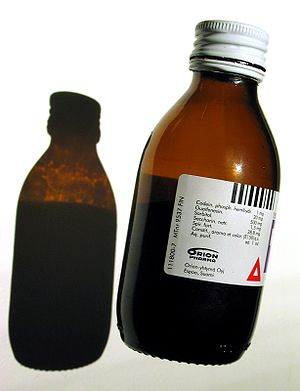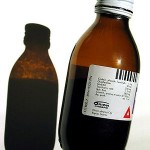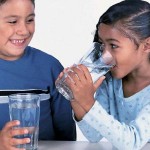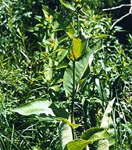Concerns about the safety of over-the-counter cold medicines for children have left many parents searching for alternative remedies for children’s cold and cough symptoms.
Popular over-the-counter cold and cough remedies for infants have been withdrawn from the market after the FDA warned in January 2008 against giving those types of medicines to children younger than 2 because of the possibility of serious harm or death.
While the FDA is considering whether to change the guidelines for children ages 2 to 11, the Consumer Healthcare Products Association in October 2008 said they would voluntarily change the labels on cough and cold medications to say they should not be used in children younger than 4.
There are two types of coughs. Productive coughs and unproductive coughs.
Basically, productive coughs are bringing up “stuff” that needs to leave the body. Therefore, you do not want to suppress it. In this case, use herbal expectorants.
Eventually a cough can become unproductive, meaning you are left with an irritating cough. In this case, remedies that suppress the cough are ok to use.
It’s good to address unproductive coughs so they do not develop into respiratory infections.
Fluids
Make sure children stay hydrated, and give them what they’re accustomed to drinking. For babies, stick to breast milk or formula for those younger than 6 months. An oral electrolyte solution designed for infants, such as Pedialyte, also can be given. Don’t give straight water to babies younger than 6 months; their kidneys can’t process it correctly and an electrolyte imbalance may occur.
For children older than 12 months, try water, diluted juice, and milk.
Sometimes parents hear that they shouldn’t give milk because it promotes mucus building. That’s an old wives’ tale with no scientific evidence to back it up, Geraghty says. It’s especially important for babies to continue drinking breast milk or formula.
Coughing
Give a half-teaspoon of honey to children ages 2 to 5; 1 teaspoon to children ages 6 to 11; and 2 teaspoons to those 12 and older, the American Academy of Pediatrics recommends. Do not give honey to babies younger than 1 because of the risk of infant botulism.
Smoke can irritate already inflamed airways. Don’t smoke in a home with children, advice that extends beyond cold season. While children have colds, keep them away from smoke from other sources, too, such as grills and wood-burning fires.
If the coughing is so severe that it keeps a child from sleeping, or if the cough lasts beyond 10 days, discuss it with a doctor.
Elecampane
One of the popular ways to take Elecampane is infused in honey.
Elecampane is REALLY easy to grow. It is also low maintenance. You barely even have to water the plant in the summer.
In the fall, dig up the entire plant and cut off part of the root. The longer, thicker roots are usually snipped off. They are then washed up. Then,
1) Slice the roots in bite sized pieces, not too small.
2) Fill half a jar with them.
3) Fill the entire jar with honey.
4) Turn over the jar a few times a day for a few days.
5) In a few days, it’s ready!
6) Keep it in the fridge.
When you have a cough, simply eat the honey. Honey also feels good on the throat as well. Also, eat the pieces of root. They are candied. You can chew on them for a while, then spit them out.
The main advantage of this preparation is that kids love it too!
When to Call 911
- If an infant is making grunting noises while trying to breathe.
- If a child stops breathing for more than 10 seconds.
- If a toddler can’t complete a sentence because he is struggling to breathe.
- If there is a blue or dark purple color to the nail bed, lips, gums, or mucous membranes.
When to Call a Doctor
- A child is so weak and tired he doesn’t respond well.
- A child doesn’t play for at least a few minutes in a four-hour period while he is awake.
- If a child complains of a tight feeling in his chest, or that his chest hurts.
- If, after seeing a doctor, a child starts wheezing or having more difficulty breathing.
- If an infant can’t be calmed by methods that usually work, like singing, rocking, or giving a pacifier.
- A child tugs at her ear or shows sign of ear pain.
- Fever of 100.4 degrees Fahrenheit or higher in a child 3 months or younger.
- Fever for more than three days in an older baby or child.
- If the child appears dehydrated. For babies younger than 12 months, that means a dry diaper after six to eight hours. For older children, that means no urination for more than eight hours. No tears when crying, sunken eyes, and dry lips are also indicators of dehydration.
- A child has bloody mucus or saliva.



